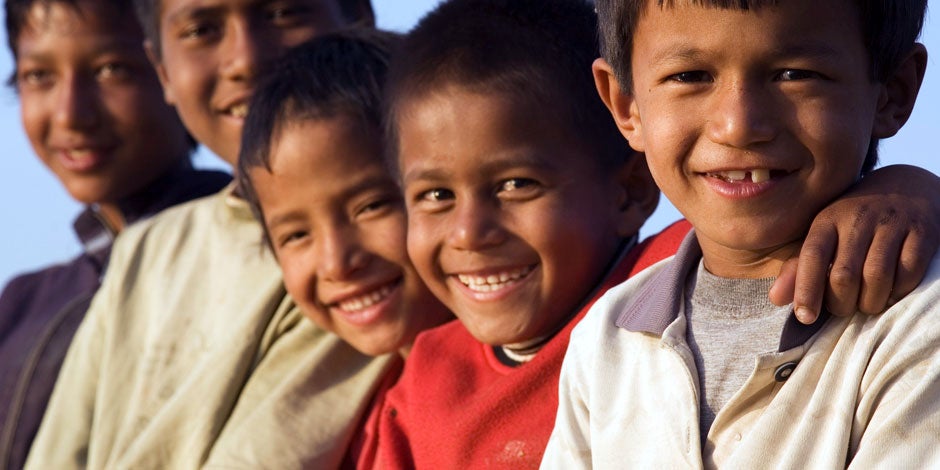Technical Assistance

Our specific areas of expertise include strategic scale-up, fertility awareness methods (FAM) of family planning, reproductive health needs of very young adolescents (VYAs), and gender equality.
Each request for technical assistance is unique and requires the adaptation of materials and processes for the specific request and context. To speak to someone directly about receiving technical assistance from IRH, please contact Susana Mendoza Birdsong at smm56@georgetown.edu.
Explore examples of how IRH has offered technical assistance.
Evaluating the Choices Curriculum in Nepal
Save the Children approached IRH to evaluate CHOICES, a curriculum-based intervention for very young adolescents, aged 10-14, in Nepal. The CHOICES curriculum was designed to engage youth in fun, developmentally appropriate activities to encourage gender equity among girls and boys in their community. IRH worked closely with Save the Children to develop measurable indicators of gender equity, and methods and tools for conducting the evaluation. A variety of research methods were utilized in the evaluation, which compared a group of children in child clubs who had completed the CHOICES curriculum to children in child clubs who did not participate in CHOICES. The results showed that the CHOICES curriculum successfully contributed to more gender equitable behaviors and attitudes in girls and boys. For more information about the methodology and results, read the project brief.
Addressing social & cultural barriers to family planning
Despite significant gains in family planning use in Kenya, unmet need is a continuing concern. In particular, Kenya’s North Eastern Province still has a total fertility rate of 5.9. Here, social and cultural traditions (i.e., interpretations of Islam and/or some Somali cultural practices) often influence reproductive behavior. Under the APHIA II North Eastern Province Project, FHI360 conducted a situational analysis to determine the acceptability of Standard Days Method (SDM) in the area. Positive results led to the implementation of a pilot project to introduce the method in the Ijara district. With IRH’s help, project partners educated religious leaders in Ijara about SDM and the concept of healthy birth spacing and trained providers to offer SDM in select health facilities. Results of the introduction showed that the majority of SDM users were new to modern family planning use. Common reasons for selecting the method were: “it doesn’t affect health” (42 percent), “it has no side effects” (38 percent), “religious reasons” (33 percent), and “it is easy to learn/use” (31 percent). For more information about SDM introduction in North Eastern Province, read the project brief.
SDM introduction in Ghana
The Ghana Health Service, United States Agency for International Development (USAID) and other health development partners have been interested for some time in adding the Standard Days Method® (SDM) into family planning services in Ghana. Before 2012, the Ghana Health Service did not systematically include SDM in its family planning programs, and CycleBeads® were not widely available in the country.
In collaboration with the Focus Region Health Project managed by John Snow Inc., IRH was invited to provide technical assistance for SDM introduction into six districts. Based on monitoring and evaluation results of the pilot introduction, SDM integration into existing family planning services was found to be very positive. Family planning programs were strengthened with the addition of SDM. SDM users expressed satisfaction with the method and were able to manage the fertile days with their partners. Finally, provider perceptions of adding SDM to their services were equally positive. For more information about the results of SDM introduction in Ghana, read the project brief.
 Where We Work
Where We Work  Press Room
Press Room  FACT Project
FACT Project  Passages Project
Passages Project  Learning Collaborative
Learning Collaborative  Search All Resources
Search All Resources  Social Norms
Social Norms  Fertility Awareness Methods
Fertility Awareness Methods